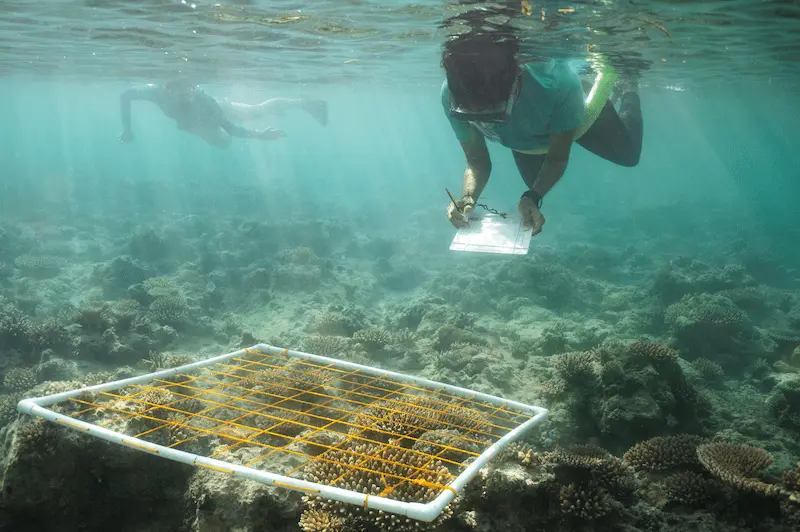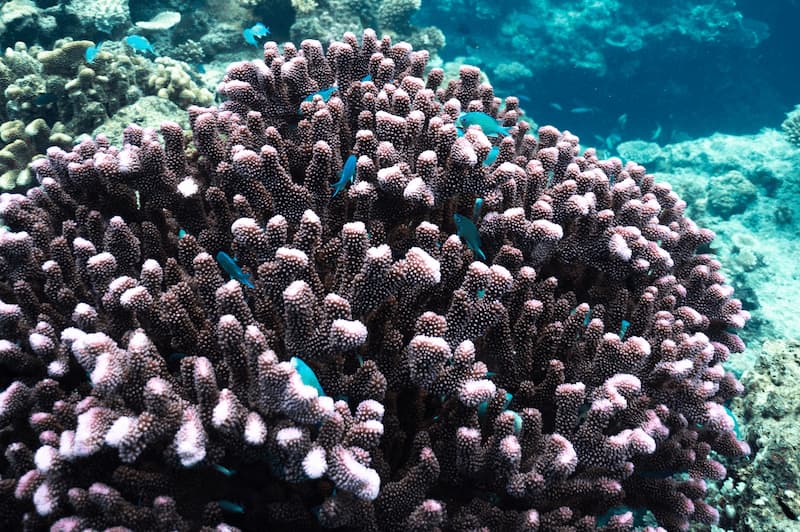Coral reef ecosystems and the natural resources they provide are essential to the economic vitality of small island states and the livelihoods of their residents. Following past periods of rapid and minimally-regulated development, most islands face declines in fisheries, loss of marine species, and threats to coral reef health. These circumstances, coupled with the impacts of climate change in the Anthropocene, have propelled island nations to the forefront of marine resource management and innovation.

Coral health and ecology
Using shipboard measurements of seawater pH and alkalinity (buffering capacity), SEA students establish baseline conditions of ocean chemistry and assess changes over time.SEA’s snorkel-based reef surveys utilize modified versions of the Coral Health Index (CHI) and Atlantic and Gulf Rapid Reef Assessment (AGRRA) methodologies. Student scientists identify and record coral diversity and health (amount of bleaching or disease), percent algae/seagrass/sponge cover, fish and invertebrate abundance and diversity, as well as numerous environmental parameters (e.g., temperature, salinity, pH, nutrients, bacteria). With repeated voyages and observations across the central Pacific, SEA documented massive coral bleaching associated with the unprecedented 2015/16 El Niño. Years later, SEA students detailed and confirmed the recovery of these very same reefs, demonstrating the resiliency of the marine environment.

Coral reef ecosystem services
SEA students speak with reef health stakeholders and collect field data during coral reef snorkeling surveys to assess how land use, watershed management, and tourism impact the state of reef resources throughout a specific region.